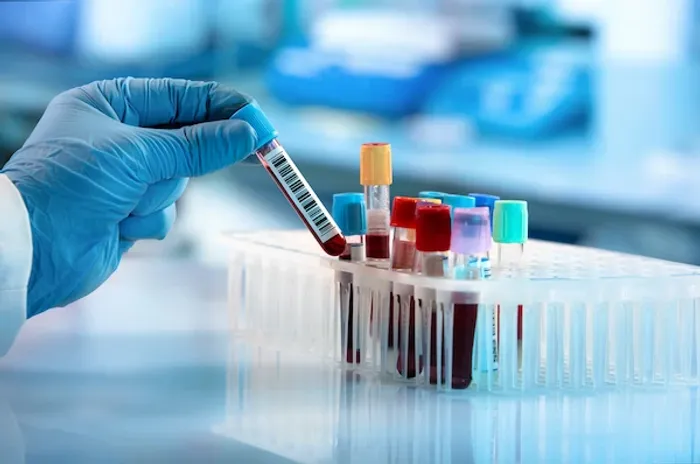Total Leucocyte Count Test and Normal Range
Learn about the Total Leucocyte Count (TLC) test, its purpose, normal range, and what abnormal results may indicate. Understand how this blood test helps assess immune function and detect infections.

Written by Dr. M L Ezhilarasan
Reviewed by Dr. Rohinipriyanka Pondugula MBBS
Last updated on 13th Aug, 2025

When you visit a doctor for a health check-up or due to an illness, you may be asked to get a Total Leucocyte Count (TLC) test. This simple blood test helps doctors understand how well your immune system is functioning. If you're unsure what this test means or why it's important, this article will explain everything in simple terms.
What is a Total Leucocyte Count (TLC) Test?
The Total Leucocyte Count (TLC) test measures the number of white blood cells (WBCs) in your blood. White blood cells are a crucial part of your immune system they help fight infections, protect against diseases, and keep you healthy.
A high or low TLC can indicate different health conditions, so this test helps doctors diagnose infections, inflammation, allergies, or even more serious illnesses like leukemia.
Consult a Top Immunologist
Why is the TLC Test Done?
Your doctor may recommend a TLC test if you have symptoms such as:
- Fever or chills (sign of infection)
- Fatigue or weakness
- Frequent infections
- Unexplained weight loss
- Body aches or inflammation
- Allergic reactions
It is also part of routine blood tests during health check-ups, before surgeries, or to monitor conditions like autoimmune diseases.
Get Your Health Assessed
What is the Normal Range for TLC?
The normal range for Total Leucocyte Count (TLC) in adults is typically:
- 4,000 to 11,000 white blood cells per microliter (µL) of blood
However, this range may vary slightly depending on the lab and individual factors like age, gender, and health conditions.
What Does a High TLC Mean? (Leukocytosis)
If your TLC is above 11,000 cells/µL, it may indicate:
- Bacterial or viral infections (like pneumonia, flu)
- Inflammation (due to arthritis, injury, or autoimmune diseases)
- Stress or physical trauma
- Leukemia or other blood disorders (in rare cases)
What Does a Low TLC Mean? (Leukopenia)
If your TLC is below 4,000 cells/µL, it may suggest:
- Viral infections (like HIV, hepatitis)
- Bone marrow disorders (affecting WBC production)
- Autoimmune diseases (like lupus)
- Side effects of chemotherapy or certain medications
- Nutritional deficiencies (low vitamin B12 or folate)
How is the TLC Test Done?
The TLC test is a simple blood test where a small sample is taken from your arm. No special preparation is needed, but your doctor may ask you to fast if other tests are being done along with it.
How Can You Maintain a Healthy TLC?
If your TLC is abnormal, your doctor will guide you on the next steps. However, you can support your immune system by:
1. Eating a Balanced Diet
- Include vitamin C-rich foods (oranges, bell peppers, broccoli)
- Eat protein-rich foods (eggs, lean meat, beans) for WBC production
- Ensure enough zinc and vitamin B12 (nuts, dairy, fish)
2. Staying Hydrated
- Drink plenty of water to help flush out toxins.
3. Getting Enough Sleep
- Proper rest helps your immune system function well.
4. Managing Stress
- Chronic stress can weaken immunity—practice yoga, meditation, or deep breathing.
5. Avoiding Smoking and Excessive Alcohol
- These can lower WBC count and weaken immunity.
6. Regular Exercise
- Moderate physical activity boosts immunity.
When Should You See a Doctor?
If your TLC report is abnormal, don’t panic—many factors can affect WBC levels. However, consult your doctor if you have:
- Persistent fever or infections
- Unexplained fatigue or weight loss
- Bruising or bleeding easily
- Swollen lymph nodes
Your doctor may recommend further tests (like a differential WBC count, bone marrow test, or infection screening) to determine the exact cause.
Book a TLC Test with Apollo 24|7
If your doctor has advised a Total Leucocyte Count (TLC) test, you can easily book it online through Apollo 24|7. With home sample collection and fast, accurate reports, managing your health has never been easier.
Final Thoughts
The Total Leucocyte Count (TLC) test is a simple yet powerful tool to assess your immune health. Whether it’s detecting an infection or monitoring a chronic condition, this test provides valuable insights. If your results are abnormal, follow your doctor’s advice and make healthy lifestyle choices to support your immunity.
Consult a Top Immunologist
Consult a Top Immunologist

Dr. Shalini Devireddy
neonatologist
8 Years • MBBS,MD(Paediatrics)
Manikonda Jagir
Apollo Clinic, Manikonda, Manikonda Jagir

Dr. Anshu Sethi
Paediatrician
33 Years • MBBS, MD, DM (Paediatrics & Neonatology)
Pune
Apollo Clinic, Viman Nagar, Pune
(75+ Patients)

Dr. Rohit Vohra
Paediatric Pulmonologist
10 Years • MBBS, MD PEDIATRICS, FELLOWSHIP IN PEDIATRIC INTENSIVE CARE,FELLOWSHIP IN PULMONOLOGY
Delhi
Apollo Hospitals Indraprastha, Delhi
(75+ Patients)

Dr Yaja Jebaying
Paediatric Gastroenterologist
9 Years • MBBS, MD PEDIATRICS, FELLOWSHIP PEDIATRIC GASTROENTEROLOGY AND HEPATOLOGY AND LIVER TRANSPLANTATION
Delhi
Apollo Hospitals Indraprastha, Delhi
(25+ Patients)

Dr. Ajit Kumar Surin
Rheumatologist
20 Years • MBBS, MD - General Medicine, Fellowship in Rheumatology Rheumatologist.
Bhubaneswar
Apollo Hospitals Old Sainik School Road, Bhubaneswar
(25+ Patients)
Consult a Top Immunologist

Dr. Shalini Devireddy
neonatologist
8 Years • MBBS,MD(Paediatrics)
Manikonda Jagir
Apollo Clinic, Manikonda, Manikonda Jagir

Dr. Anshu Sethi
Paediatrician
33 Years • MBBS, MD, DM (Paediatrics & Neonatology)
Pune
Apollo Clinic, Viman Nagar, Pune
(75+ Patients)

Dr. Rohit Vohra
Paediatric Pulmonologist
10 Years • MBBS, MD PEDIATRICS, FELLOWSHIP IN PEDIATRIC INTENSIVE CARE,FELLOWSHIP IN PULMONOLOGY
Delhi
Apollo Hospitals Indraprastha, Delhi
(75+ Patients)

Dr Yaja Jebaying
Paediatric Gastroenterologist
9 Years • MBBS, MD PEDIATRICS, FELLOWSHIP PEDIATRIC GASTROENTEROLOGY AND HEPATOLOGY AND LIVER TRANSPLANTATION
Delhi
Apollo Hospitals Indraprastha, Delhi
(25+ Patients)

Dr. Ajit Kumar Surin
Rheumatologist
20 Years • MBBS, MD - General Medicine, Fellowship in Rheumatology Rheumatologist.
Bhubaneswar
Apollo Hospitals Old Sainik School Road, Bhubaneswar
(25+ Patients)